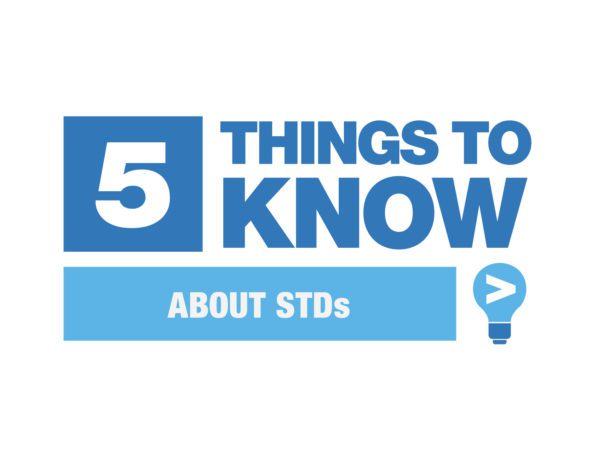Syphilis
Syphilis is a common STD. It often does not show any symptoms. Left untreated, it can cause permanent damage, like blindness or paralysis. Once diagnosed, it is easily cured with antibiotics.
Find STD Testing Near You
Click on a question below to learn more about syphilis.
- How do you get syphilis?
- What are the symptoms of syphilis?
- What's involved in syphilis testing?
- How do you treat syphilis?
- What happens if syphilis is not treated?
How do you get syphilis?
Syphilis is transmitted from skin-to-skin contact through vaginal and anal sex. It is less common – but still possible – to get it from oral sex.
A mother can also pass syphilis to a baby during pregnancy and childbirth if the mother has it and is not treated.
When used consistently and correctly, condoms protect against syphilis and many other STDs.
What are the symptoms of syphilis?
Like most STDs, syphilis often does not show symptoms. The only way to know is to get tested.
There are several stages of syphilis and symptoms can vary with each stage. In the primary stage, symptoms may include sores on the vulva, vagina, anus, penis, scrotum, or mouth, but many people do not notice or have sores. Syphilis sores (called a chancre) are usually firm, round, and painless, or sometimes open and wet.
In the secondary stage, symptoms often include a rash – which can be hard to see and usually does not itch. You may feel sick and have mild flu-like symptoms, like a slight fever, tiredness, sore throat, swollen glands, headache, and muscle aches.
What's involved in syphilis testing?
Syphilis is tested with a blood sample. If you have open sores, a healthcare provider may gently swab the area to take a sample of fluid and test it.
To find free and low-cost STD testing near you, go to greaterthan.org/services.
How do you treat syphilis?
When diagnosed early, syphilis can be easily cured with antibiotics (usually penicillin) prescribed by a healthcare provider.
It is important to complete the full treatment, as prescribed by a healthcare provider, even if symptoms go away sooner. The infection stays in the body until the antibiotics course is completed.
Some healthcare providers may give a separate dose of antibiotics for your partner(s) to avoid re-infecting each other or anyone else. Do not have sex until you have finished treatment.
Get tested again in 3-4 months to make sure the infection is gone and you were not re-exposed.
What happens if syphilis is not treated?
Syphilis is easily cured with antibiotics in the early stages. Left untreated, syphilis can cause tumors, blindness, and paralysis, damage the nervous system, brain and other organs, and may even kill you.
If you are pregnant and have syphilis that is not treated, it can be passed to the baby during pregnancy or birth – called congenital syphilis. Congenital syphilis can lead to stillbirth, birth defects, or infant death.
The information on this page is adapted from the CDC and Planned Parenthood.
Getting Tested
HIV and other STD testing is available at most doctor’s offices and health clinics. Many health departments also offer testing. It’s fast, easy and most people pay little or nothing.

